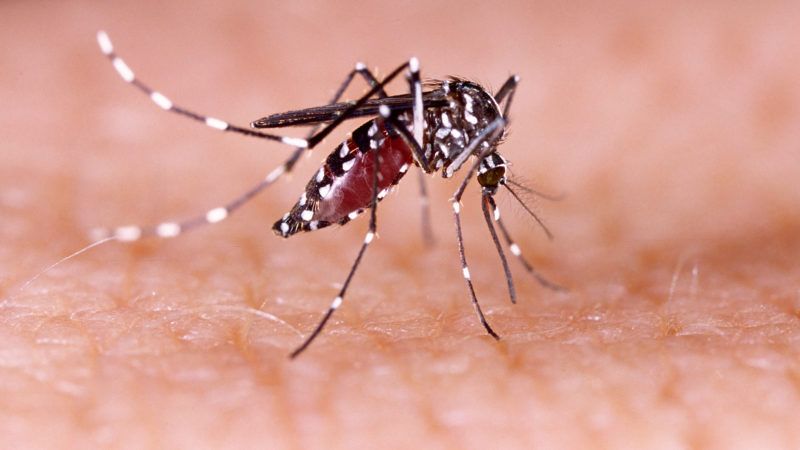Mosquitoes Genetically Engineered To Resist Dengue Fever
Gene drives could spread this beneficial trait through wild mosquito populations.

Dengue fever infects nearly 400 million people annually. It is often referred to as breakbone fever, owing to the severe muscle, bone, and joint pain it can cause. An experimental vaccine is in development, but molecular biologist Omar Akbari of the University of California San Diego and his colleagues are pursuing another approach: They have genetically engineered the Aedes aegypti mosquito that transmits dengue to be immune to all four versions of the viral disease. If the mosquitoes are immune then they cannot pass along the disease to the folks whose blood they suck.
Even better, the researchers note that the "engineered mosquitoes, in future, could easily be paired with a gene drive, capable of spreading the transgene throughout wild disease-transmitting mosquito populations and preventing further [dengue virus] transmission." Gene drives are engineered constructs can quickly spread beneficial genes through sexually reproducing wild populations. A gene drive works by making sure that both copies of a targeted natural gene are replaced in offspring with the engineered version.
The researchers add that their strategy of spreading engineered genes through mosquito populations could also help prevent the spread of chikungunya, Zika, and other mosquito-borne viral illnesses.
For more background on gene drives, see my article "'Editing' Life With Gene Drives is a Great Way to Play God."


Show Comments (34)